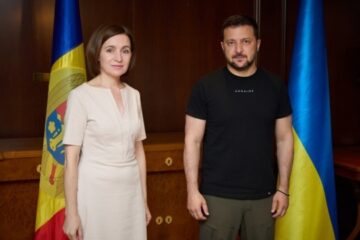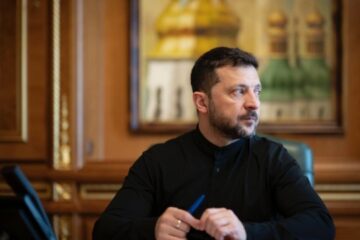As predicted, the aggressor is trying to play for time. We are waiting for Europe’s response and for the content of the announced “memorandum”. But it looks like it is going to be long waiting…
“The coming week will be decisive in the context of the conflict in Ukraine,” Ursula von der Leyen, President of the European Commission said during a meeting with U.S. Vice-President J.D. Vance in Rome for the enthronement of Pope Leo XIV. This is how she described the events in anticipation of the Trump-Putin telephone talk. Late on Monday, May 19, U.S. president Donald Trump had a telephone conversation with president Vladimir Putin of the Russian Federation – not the first one during Trump’s second term in office, but perhaps one of the most important in a symbolic and strategic sense.
The previous contact between the two rather affirmed the legitimization of the Russian regime than brought a progress towards a de-escalation, and also added a little of a “sports” topic, because the previous call was also about hockey – which looked quite bizarre in the current world of war challenges.
While making vague statements, Russia continued bombing Ukrainian cities and villages, while Trump confined his rhetoric to indirect (and sometimes direct) demands on Ukraine, reiterating that it “does not have cards” and “this stupid war has to be halted.”
Restrained or anxious expectations dominated among our European allies and the Ukrainian expert community alike: some believed and believe that the conversation would be another step towards “agreements on the very possibility of agreements,” while others are fearful of a scenario where the United States and Russia, bypassing Kyiv, would try to outline the contours of a temporary truce at the cost of Ukrainian interests.
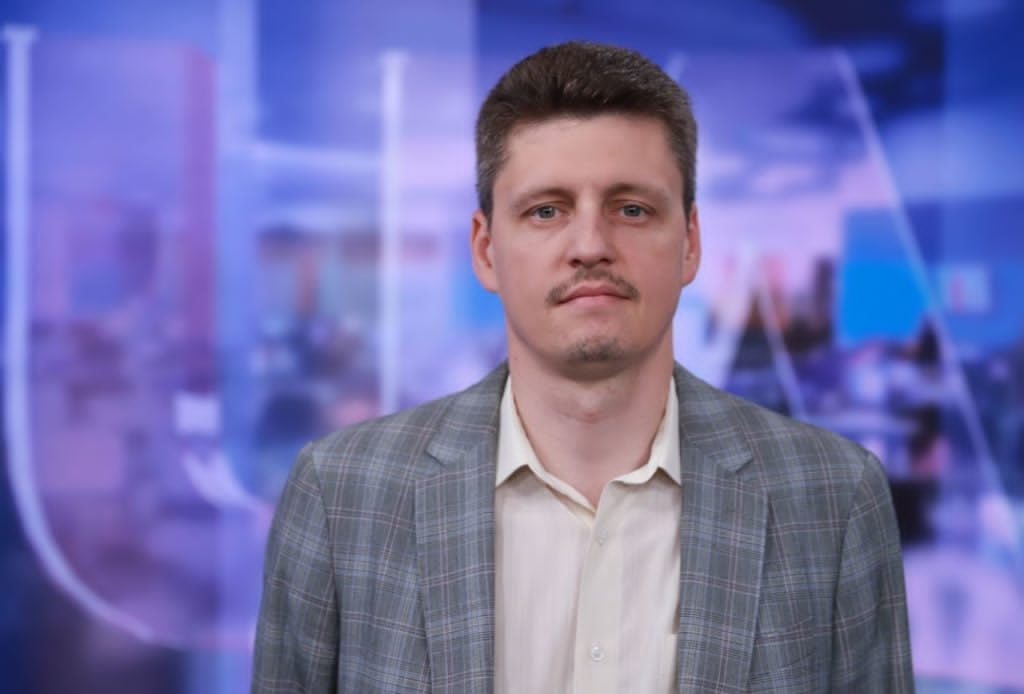
Photo International policy analyst Ihor Reiterovych
In a situation where the war is raging on and diplomacy is turning into a play of shadows, Ukrinform requested Ihor Reiterovych, an international policy analyst, first, to share his expectations for this conversation, and later, after it took place and statements followed from various parties, to assess the outcomes and potential implications. The play turned out to have several acts and intermissions
ACT ONE: “AGREED TO AGREE” – EXPECTATIONS FOR THE TRUMP-PUTIN CALL
A few hours before the conversation between the two leaders, Ihor Reiterovych believed that Russia’s war against Ukraine would be the focus of the conversation between Trump and Putin. Other topics, such as trade, potential new sanctions against Russia, as well as China, may be mentioned, but rather “for the sake of eloquence,” the expert says.
“It will be important to understand how Trump and Putin will or will not understand each other, and how it will ultimately end up. I, for example, now hear and see that in the vast majority of cases, expectations are simply about the stalling of the situation. I would like to be wrong, but most likely this will be exactly this story. Putin may throw some kind of “bone” to Trump, which will again distract attention and stall the time out.”
However, the analyst expressed cautious optimism, based on Trump’s previous conversations with European leaders: “It’s good that the Europeans had had the opportunity to talk in advance with Trump, and Zelensky with J.D. Vance, to communicate some new proposals. This will hopefully play its role, and Trump will take the right position – will talk, in particular, about a thirty-day ceasefire. And if Russia does not want to – then may him finally draw conclusions about who exactly is avoiding talks about ending the war. This is clearly not Ukraine.”
Despite the expectation of a breakthrough or “positiveness” of the conversation between the Russian dictator and the U.S. president, Ihor Reiterovych warned against unnecessary illusions: “There will be no direct relationship between Russia rejecting a ceasefire and new sanctions following automatically. This looks unlikely, regrettably. Most likely, they will “agree to agree.” Putin will again offer something like “let’s think for another week, we have a prisoner exchange, let’s do it for now. And that’s it. No tangible practical result will come.”
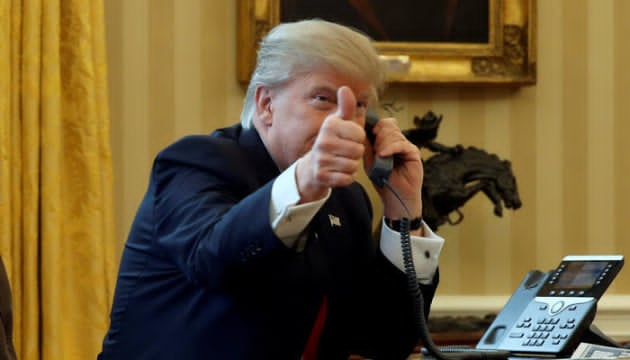
Photo U.S. President Donald Trump
At the same time, such a conversation could be part of a strategy for the future of both sides. However, these strategies currently look chaotic: “Trump and Putin have fundamentally different strategies. This conversation will be effective for us if Trump finally sees that Putin continues leading him by the nose and starts acting in a different way. But something tells me that this is going to be the same old story again – everything passed fine, we have talked, we will talk further, everything is okay, peace will come soon. I would not have high hopes.”
How international partners will respond depends on what exactly Putin and Trump will agree on: “If no specific agreements are reached and Putin again escapes accountability, then the EU may come out with tougher statements. Trump promised to call NATO leaders; let’s see if the EU leaders will fulfill their promise. Perhaps even without the United States on board, they are able to wield tougher sanctions against Russia by themsleves.”
As regards Ukraine’s role and the influence its leaders may have on the course of the telephone conversation, the Ukrainian side is so far more in the waiting position rather than thinking proactively. The analyst continues, “Ukraine’s role will depend on the outcomes. It may well be that Trump will call Zelensky and say: “We have agreed to do this and that.” And Zelensky will not agree, that is, figuratively speaking, will advise him to go “in the direction of the Russian ship”.
Asked what could cause such a situation, the political analyst explains: “There have been suggestions that, for example, the interlocutors may agree on a ceasefire, but on the condition that Ukraine will be barred from any military recruiting or Western weapons during those 30 days. Ukraine can diplomatically reply that we will not do so and will need to coordinate this position with the Europeans. After all, maybe Trump has this goal – to put Ukraine in a position where we will simply have no choice but to refuse, so that later he can say: “Well, I did everything I could, goodbye.” This is scenario is pretty possible. I don’t think it is very realistic, but it can happen and we have to get prepared for it. If this is the case, our authorities will hopefully know how to respond and communicate correctly.”
ACT TWO: TRUMP’S CALL TO ZELENSKY AND FIRST STATEMENTS
Literally an hour before the announced conversation, the media published a report about the US President’s previous conversation with the President of Ukraine. However, everything is not so certain, the political analyst says: “There is a strange silence from the Presidential Office. Such things are supposed to be talked about. Or, I think that maybe it was a very, very short conversation. Trump simply let Zelensky know about the topics to be discussed during his conversation with Putin. Alternatively, he could have asked Zelensky to do what Ukraine was ready to do. Therefore, I advise you to wait for the comments from the Ukrainian side.”
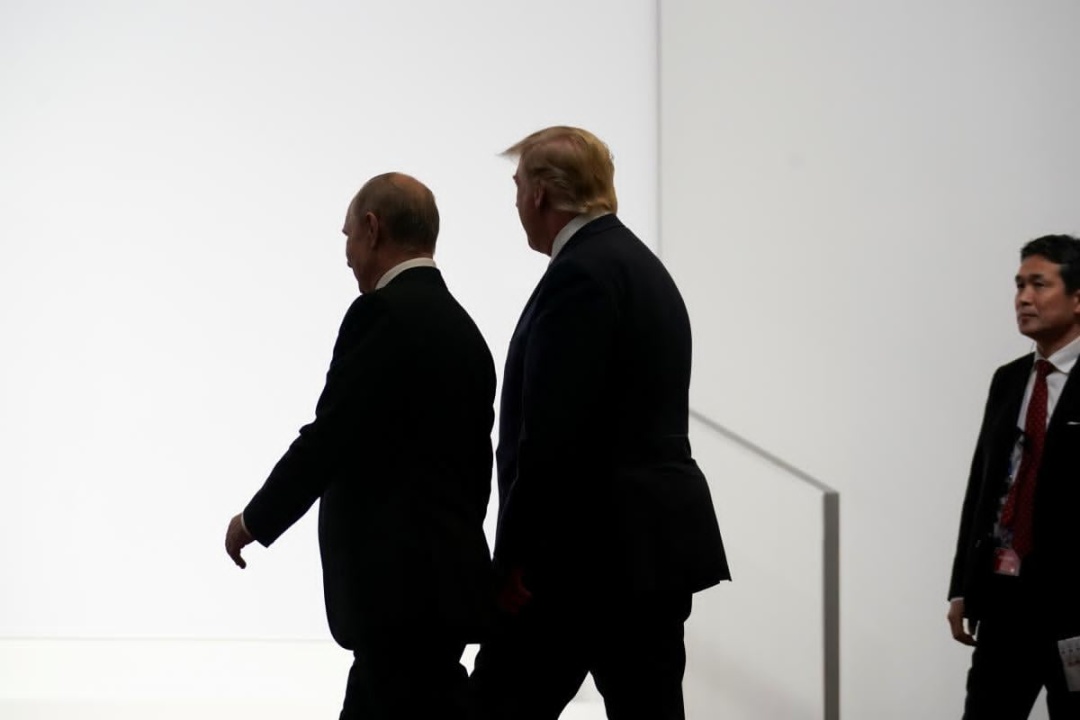
Photo Vladimir Putin and Donald Trump, 2019 Osaka meeting
After two hours of waiting, the Russian propaganda channels were the first to speak. Putin said in a statement that Russia was apparently ready to work on a memorandum for peace deal with Ukraine, which would include a possible ceasefire for a certain period of time.
Meanwhile, Ihor Reiterovych says that his expectations have so far come true: “Everything we have heard rests on this words about a memorandum that will also include a possible ceasefire, but this will be subject to certain conditions. What kind of conditions is not clear. This is very similar to ‘agreed to negotiate.’ If it were about an immediate and unconditional ceasefire, the expert says, it would sound differently: ‘We agreed to cease fire from such and such a date. And here Putin essentially said that they will continue to communicate.’ In the end, he says, the conversation did not last that long: two hours, minus the interpreters, Putin’s slow pace of thinking and speaking.” The expert jokes: it seems they didn’t have time to talk about hockey in the end…
Reiterovych advises to carefully monitor the further course of events: “Now it’s important who Trump will call to tell about it.” Does this scenario change the configuration of risks and expectations? ” No. The war will go on. Meetings between delegations will be scheduled, where they will discuss something. I’m afraid it will drag on for a fairly long period of time.”
There is an equally important marker – Europe’s response. “What should they do the next day, on Tuesday? If logic is followed, then – in a situation where no peace or ceasefire had been agreed upon – new, tougher sanctions would have to be applied on Russia. And Trump, let’s assume, will not call them to say: “Let’s wait.” This is a very important point, perhaps the main thing to pay attention to.”
ACT THREE: TRUMP AND HIS “WONDERFUL” NEGOTIATIONS
A little later, following the Russian dictator, Trump, true to form, joined the game on his social network Truth Social: “I think it (the conversation) went very well. “Russia and Ukraine will immediately start negotiations toward a ceasefire and, more importantly, an end to the war. The conditions for that will be negotiated between the two parties, and the conditions for a ceasefire could only be agreed by the warring parties because they know details of a negotiation that nobody else would be aware of”, Trump said, as quoted by Ukrinform.
“Nothing new. Unfortunately or fortunately,” says Reiterovich. “But there is a very important point that I want to draw attention to. The main demand for the conversation was an immediate ceasefire. We did not see or hear about any immediate ceasefire agreed upon. Tere was not anything close to this in Trump’s post-call statements either. “Indeed — the expert admits — Putin was speaking about compromises of some kind, Trump said that negotiations on a truce would begin immediately,” and then Ushakov comes out and says that no specific terms were discussed during the conversation between the two presidents. That is, Trump was once again spit in the face by the Russians just three minutes after he published his post on his social network.”
As Ihor Reiterovych notes, some American media outlets, such as Sky News, for example, predicted that the outcomes of Trump’s conversation with Putin would be a disappointment for Ukraine and the European Union.
But will this be a disappointment or the expected “turning point”? “Ursula von der Leyen has already thanked Trump on social networks, praising him for being such a great guy. Politicians of this level cannot say otherwise. Get it? After all, both Europe and we do not want the United States to withdraw from the negotiations. I understand them perfectly well, Ukraine does not want it either. There is no other option here.”
On the positive side of the conversation, the analyst said he is expecting some progress in the coming week regarding the start of new discussions: “But by and large, no breakthrough has occurred and the negotiations will continue against the backdrop of the war, which will go on.”
The expert predicts European decisions to be more or less stable and not too active and “encouraging”: “The EU will officially announce the 17th package, I think. They will officially propose that the G7 lower the oil price cap from 60 to 50 dollars. I am uncertain as to whether a new batch of sanctions will be imposed on Russia. They will probably allow “another week of time” and will be able to raise military support for Ukraine for this period.
Summing it up, Ihor Reiterovych admits that “it takes political will and an understanding that sometimes some risky things need to be done in order to achieve the most beneficial result. I am still doubtful about that happening, but a lot will depend on when the groups meet, where they will negotiate about what.”
The situation continues to unfold slowly. The “wow” effect did not work out, just as the difficult scenarios for Ukraine that were circulating across the media the day before did not come true either. The expert’s forecast turned out to be accurate; but how the course of events will develop further is only someone’s guess. Now it’s up to the EU to take action.
Yaryna Skurativska, Kyiv


